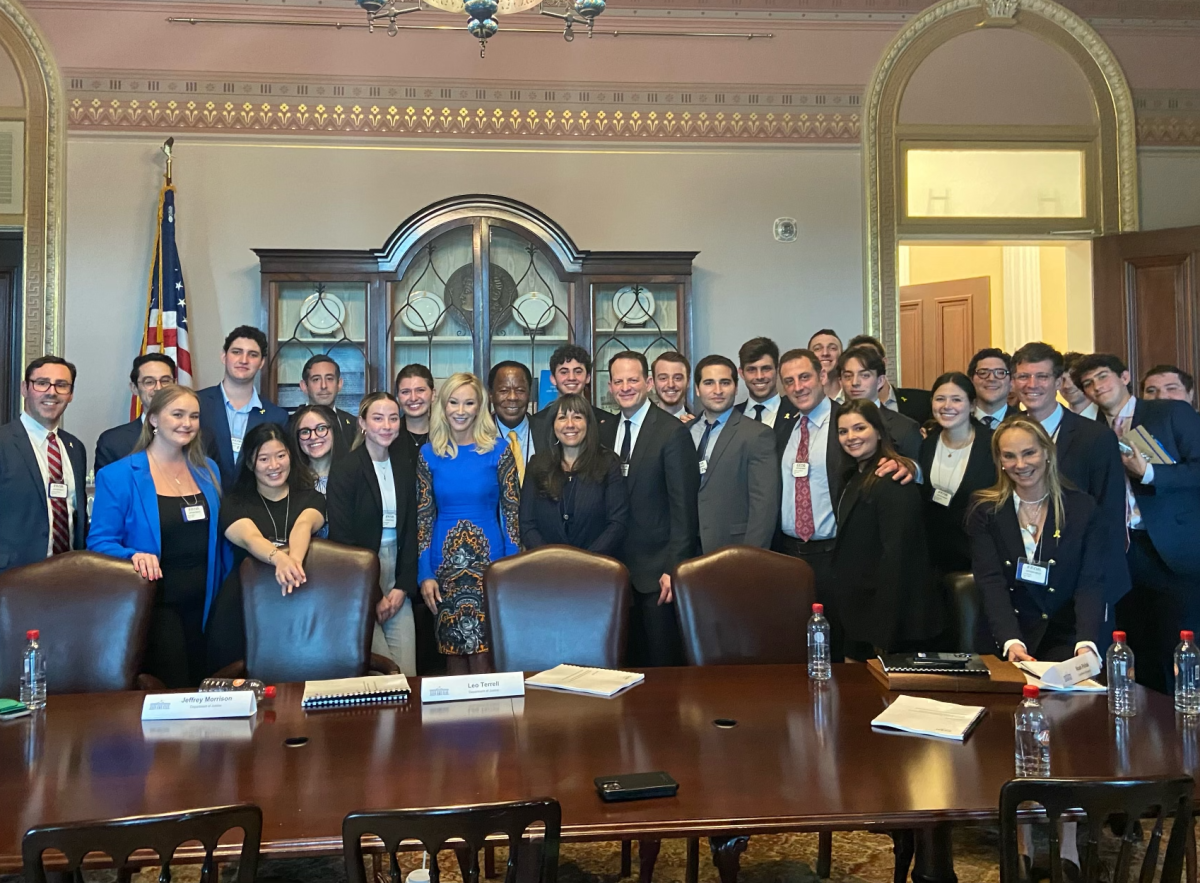Sandra Cisneros, the award-winning author of “The House on Mango Street,” visited Pick-Staiger Concert Hall Wednesday to read several of her poems and discuss the new opera inspired by the novel.
Cisneros and composer Derek Bermel are working together to create the upcoming opera.
“So, in order to make my family uncomfortable, I’m going to read a poem about them,” Cisneros joked as a nod to her family, friends and “chosen family” watching in the audience.
The first work she read was an unpublished poem that described her experience growing up in a Mexican American family in Chicago.
She said the poem was something she would have been too ashamed to write if she was younger.
“We need to write from the thing we don’t talk about,” Cisneros said. “If you don’t transform your demons into art, your demons will transform you.”
The audience echoed a line in Cisneros’ reading of “A Boy with a Machine Gun Waves to Me.” Cisneros also featured the poem “I Have No Word in English For.”
The reading was followed by a discussion with Bermel. Although the opera is still a work in progress, it is set to premiere this summer at the Glimmerglass Festival in New York.
“There’s some words that really make you want to sing and to set those words (to music),” Bermel said. “You feel like you can live with those words, and they evoke music for you. And I think that was how I felt when I read this book.”
“The House on Mango Street” is known for breaking conventional literary styles and instead consisting of a series of vignettes, or short, descriptive pieces of writing. The poetic style left room for interpretation, Bermel said.
To make the story fit the form of an opera, Cisneros said the pair had to be more direct with some of the scenes implied by her poetry to make the plot more developed and dramatic on stage, and combined some characters.
“(Bermel) developed a lot of things that I hadn’t thought about, like making Alicia undocumented,” Cisneros said. “There’s a lot of contemporary themes in the opera that maybe (are) there in the book, if you know how to read it. So I was very pleased at how (Bermel) pulled things forward so that I could see them in a new light.”
Cisneros wrote the libretto, or lyrics, while Bermel composed the music.
Bermel said there is a variety of music genres featured in the opera since he followed the rhythm of Cisneros’ words, but added that part of the challenge was to choose which words to include.
“Imagine getting lines from Sanders Cisneros — it’s like a dream,” Bermel said. “But then you’re saying, ‘Okay, now, which of these ones sing?’”
The discussion was broken up by three arias, or solo songs, from the opera, which were performed by Bienen first-year graduate students Molly Snodgrass and Marie Engle, as well as Bienen Music Performance Instructor Jason Carlson.
The event was co-hosted by the Litowitz MFA+MA Program in Creative Writing and English and the Bienen School of Music.
Assistant Director in Creative Writing and English Colin Pope said he hopes the audience members walked away from the experience with an appreciation for the wide range of Cisneros’ work and the combination of literature and music.
“Interdisciplinarity is one of the things that is the hallmark of Northwestern,” Pope said. “But I also think that it just broadens the mind to expand traditional forms from where they started, or expand any form, for that matter, from where it started.”
Cisneros said her novel “The House on Mango Street” carries the rhythm of the Spanish she heard around the house growing up.
When writing for the opera, she said she listened to how her friends and family spoke.
“I like to tell stories, and I like to hear how people sing with their sentences,” Cisneros said. “The rhythms of people speaking in any language fascinates me, and the music they create.”
Email: [email protected]
Bluesky: @aknewsom.bsky.social
Related Stories:
— Writer Sandra Cisneros discusses new book for Chicago Humanities Festival
— Authors John Green and Rebecca Makkai share writing experiences at Chicago Humanities Festival
— Former Poet Laureate Natasha Trethewey reflects, explores recent book at Chicago Humanities Festival







